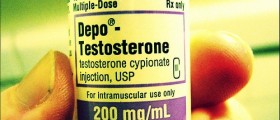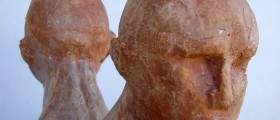
But, while previous studies had already shown fathers to have lower testosterone levels, that research did not specify whether having a baby caused a drop in testosterone. Christopher Kuzawa of Northwestern University, who worked on the study, said: "Our study shows that human fathers are biologically wired to help with the job." Ha! Whether that is true in practice is up for debate, I think and it would be fascinating to see whether testosterone levels in fathers actually vary per country/culture or subculture.
There are plenty of uninvolved fathers around everywhere, and in some cultures mothers are still seen as solely responsible for childcare, especially if they have a baby under six months old. Anyway, let's have a look at what else the researchers found out. Lee Gettler of Northwestern University, who also worked on the study, made the following statement:
It's not the case that men with lower testosterone are simply more likely to become fathers. On the contrary, the men who started with high testosterone were more likely to become fathers, but once they did, their testosterone went down substantially. Fatherhood and the demands of having a newborn baby require many emotional, psychological and physical adjustments. Our study indicates that a man's biology can change substantially to help meet those demands.The study followed a total of 600 men who were not fathers at the beginning. The men, all from the Philippines, were monitored for five years. The research team noticed a significant drop in testosterone right after these men become fathers, at least for a short period of time.

















Your thoughts on this
Loading...